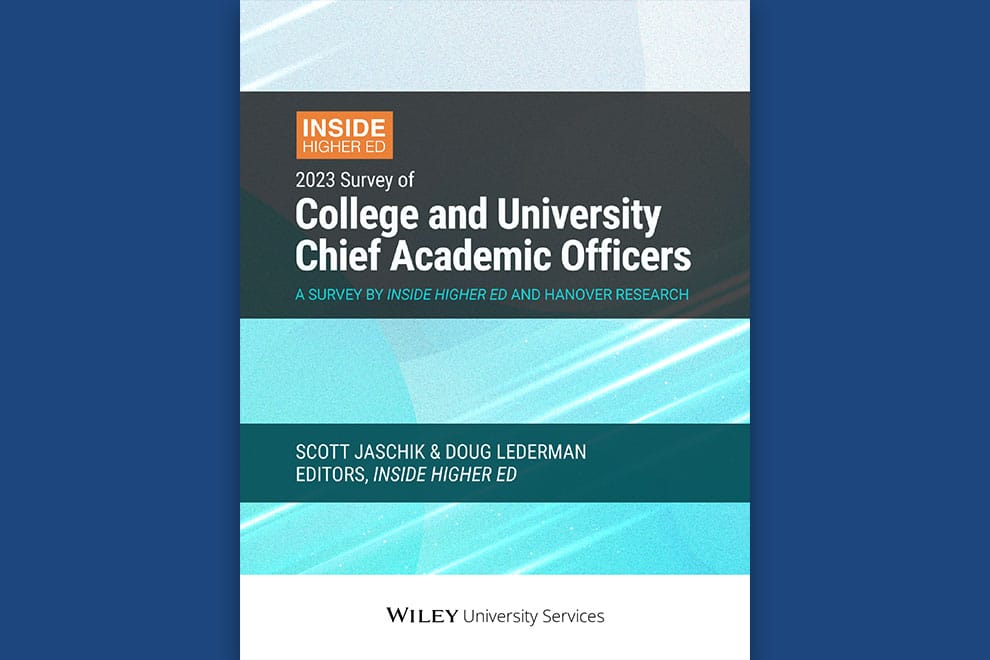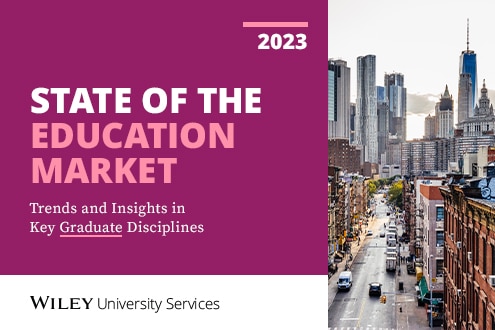Employers have felt the effects of the skills gap for years. And as our Closing the Skills Gap 2023 report shows, this challenge accelerated during the pandemic. In this infographic, we present new employer perspectives on this trend to help your university equip learners with in-demand skills.
Click the image below to view the full infographic.

About the Closing the Skills Gap 2023 study
We surveyed 600 HR professionals from multiple industries during the summer of 2022.
The skills gap is widening — rapidly
Percent of employers with a skills gap
55% (2021 report)
69% (2023 report)
Skills gaps form because employers can’t:
40%- Retain qualified employees
32%- Hire or retain qualified candidates
26%- Hire qualified candidates
3%- Other or unsure
Barriers
About 40% lack the development initiatives or resources to address this issue
Soulutions
65% of employers would upskill or reskill their employees to close a skills gap
Hard vs. soft skills
How long are these skills useful?
Two years or less
47%- Hard skills
43%- Soft skills
Five years or more
18%- Hard skills
27%- Soft skills
Which jobs are the hardest to fill and retain?
Human resources roles
45%- Hardest to fill
38%- Hardest to retain
Technology and IT roles
31%- Hardest to fill
28%- Hardest to retain
Management roles
29%- Hardest to fill
24%- Hardest to retain
Customer service roles
25%- Hardest to fill
27%- Hardest to retain
Sales roles
24%- Hardest to fill
25%- Hardest to retain
During the last year, at least 10% of open roles went unfilled at 44% of organizations.
Putting learning and development to work
The leading ways to upskill employees
Access to online education platforms- 41%
Company-sponsored scholarships- 36%
Mentoring/reverse mentoring- 36%
Tuition reimbursement- 34%
University-sponsored tuition discounts- 32%
66% reimburse the maximum non-taxable amount (or more)
$5,250 or more- 66%
Less than $5,250- 25%
How do employers validate job skills?
51%- Industry certifications
45%- College degrees
37%- Project portfolios
33%- Skills bootcamps
20%- Badges
9%- MOOC certificates
Three-fourths think these qualifications are equal when considering alternatives to college degrees
5 years of relevant work experience = Certificates from colleges and universities = Digital badges and micro-credentials
Graduating from college still offers a solid ROI
81% Believe a bachelor’s degree leads to a better job
How can your university help?
Work with local employers to close their skills gaps
- Gather insights on the skill deficiencies employers need to address
- Refine your courses to provide skills that learners need for open roles
Analyze the credentials employers use to validate skills
- Update your degree programs to align with relevant certifications
- Offer credentials beyond the degree to meet changing skill needs
Help local workforces use their tuition benefits
- Research the tuition reimbursement rates for local employers
- Seek options for meeting those criteria, such as reducing tuition or required credits
Download your copy of Closing the Skills Gap 2023
How can you prepare more learners for post-pandemic success? Get our complimentary report for insights and recommendations for enhancing your academic programs to meet today’s skills needs.
* All percentages have been rounded. That’s why the total percent figure in a table may not add up to exactly 100. Additionally, if the total percentage is substantially more than 100, the question allowed respondents to choose more than one option.

















